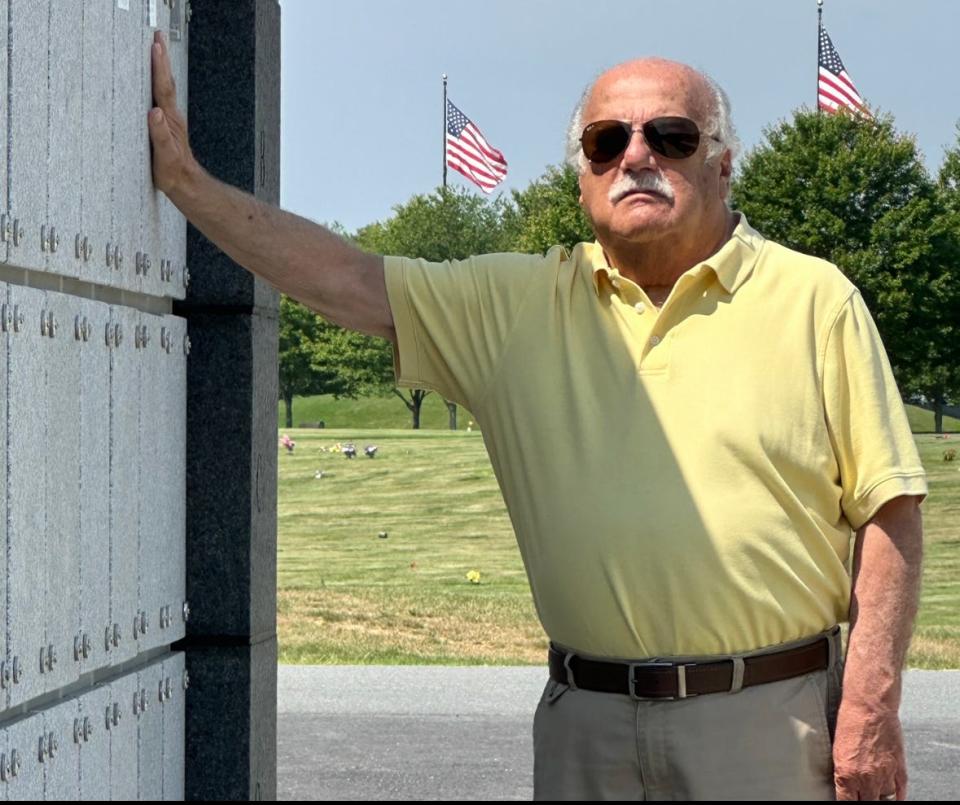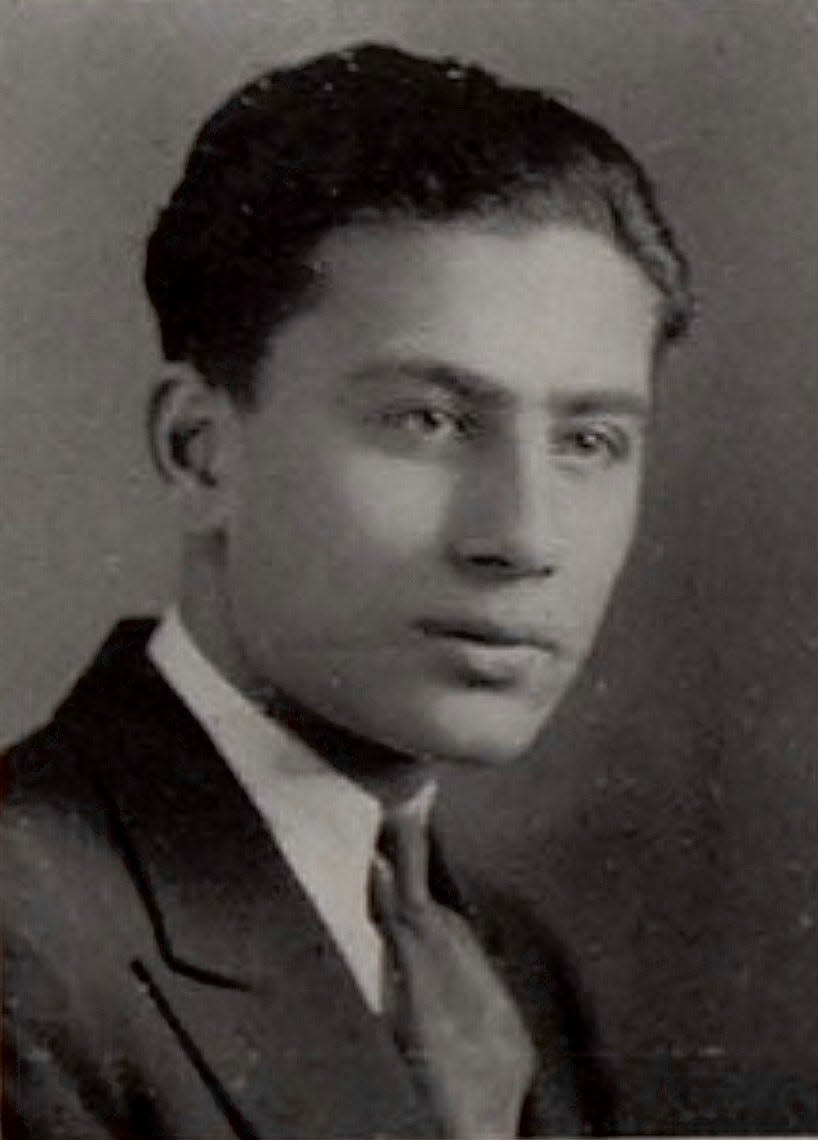'The closest I’ve been to him': 80 years later, a fallen soldier at last comes home
It has long been a promise to those who serve that no one is left behind, and now, here at Rhode Island’s Veterans Cemetery in Exeter, I am about to witness an astonishing reminder of that.
It is a beautiful, expansive burial ground, washed in a hot sun this day, its 280 rolling acres the final home to more than 42,000 souls.
I have come to visit one of the latest to join their ranks.
His name was George “Bud” Thomas, of East Providence, Rhode Island, and his journey to his resting place says extraordinary things about what this country does for its own.
George will forever be 31. That’s how old he was when he was killed in November 1944 in World War II. Almost 80 years later, his funeral was held in the cemetery chapel here on July 10.

The story behind it was nationally notable, a case of an unknown soldier’s remains from the middle of last century finally identified in 2023 — and brought to this lovely place in Exeter — because of the promise that no one will be left behind.
I arranged to meet one of George’s surviving relatives here — his nephew and godson Richard Thomas, now 81. During last Monday’s funeral service, Richard was the designated family member to receive the folded flag and fired cartridges from George Thomas’s three-gun salute.
But this visit days later would be the first time that Richard saw the spot where his uncle now rests, his cremated remains having just been placed in one of the cemetery’s granite columbarium walls.
Richard spent his career as an automotive parts rep and today dabbles in real estate, having also spent six years in the National Guard. His two children are both attorneys. Richard was just 4 when his Uncle Bud was killed.
Bud Thomas was one of eight siblings, three of whom fought in the war. Two came home.
Loss is felt more deeply when a loved one is unable to be laid to rest, and Richard tells me his elder family members didn’t talk often about what had happened to George, as it was still painful.
But his Uncle George was well remembered as a dynamic young man with a deep, eloquent voice, a gifted athlete and golfer who, like so many millions, put life on hold to answer the call of his country to fight a global menace in the 1940s.
Richard spoke of this as we approached the columbarium and began a search among the names on the walled chambers for the final resting place of George Thomas.

It was a few years ago, Richard said, that he got a surprise call from a special unit of the Defense Department tasked with identifying remains. Because of scientific progress, there was now hope this could happen with George Thomas. Richard was asked if he would send back a DNA sample, and he was happy to do so.
George gave his life in November 1944 when the Germans began a fierce month-long battle near their country's Belgian border in a place called the Hürtgen Forest. George Thomas was on the front lines. On the 24th of that month, the Germans unleashed artillery fire on his unit, taking his life at the age of 31.
In ways one does not want to fully picture, George was one of many who were beyond recognition. The military uses respectful phrases when a body is not able to be identified. In this case, they said George was among commingled remains, and one can imagine the heartbreaking task for those charged with gathering up what was left.
The remains were buried in cataloged but unnamed graves in an American cemetery in nearby Belgium. Almost 80 years later, in a reflection of extraordinary diligence, the grave thought to include George was exhumed recently for testing.
Four months ago, Richard Thomas was at home in East Providence when that same special unit of the Department of Defense called again. They had identified his uncle.
Richard thought just a few family members would be at last Monday’s cemetery chapel funeral, but 16 police cruisers from all over Rhode Island were there, as well as the mayor of East Providence and others who came to pay respects to a fallen soldier.
“So many people cared,” he said.
He knew the moment would mean a lot to George’s siblings, all now of memory, including Richard’s dad, Michael Thomas, who I was intrigued to hear was a prominent Providence Journal sportswriter for 40 years.
As we approached the granite-walled columbarium, Richard told me there is a family plot elsewhere in Rhode Island, but the Veterans Cemetery was chosen as George’s resting place because, like so many others here, his service was central to who he was, and it would ever be so.
Suddenly, on one of the upper rows of the wall in front of us, we found it, George’s name on a temporary marker awaiting a permanent plaque.
Instinctively, Richard touched the front of the small chamber.
“This is the closest I’ve been to him,” he said.
For a moment, his voice caught, and in this tableau, one saw the power of the promise of leaving no one behind, because even 80 years later, families still need closure.
And now Richard had that.
For a long time, he stood there in the sunlight, touching the grave. Finally, he said, his Uncle Bud is now home.
This article originally appeared on The Providence Journal: After WWII soldier's remains are ID'd, his nephew gets to say goodbye

